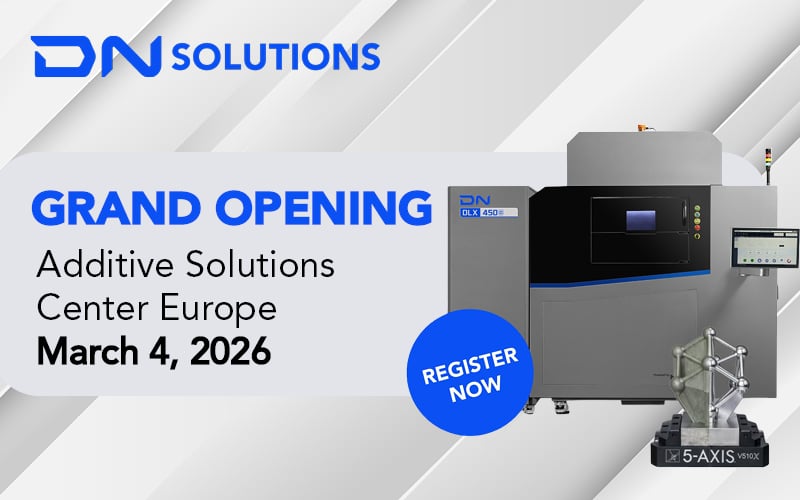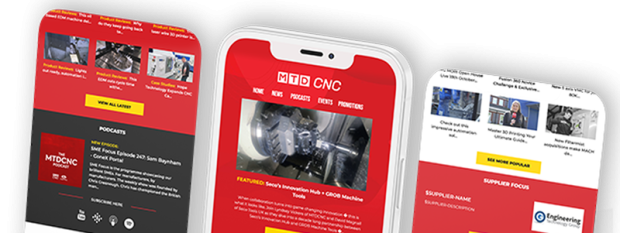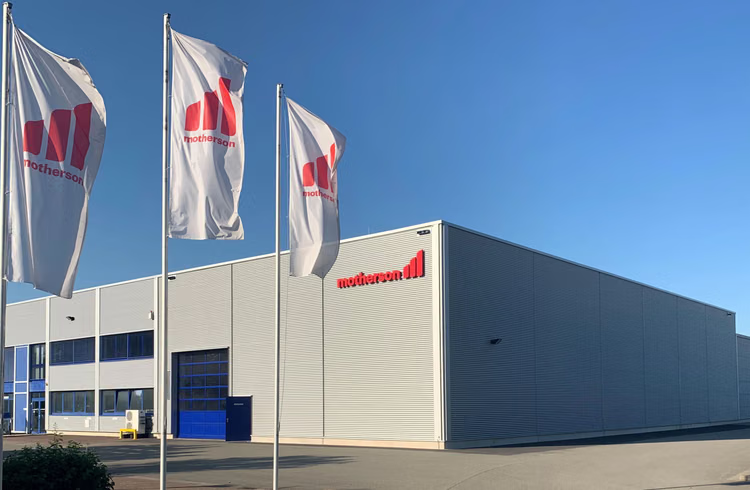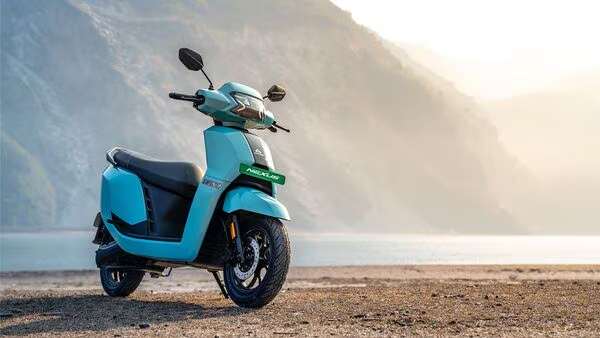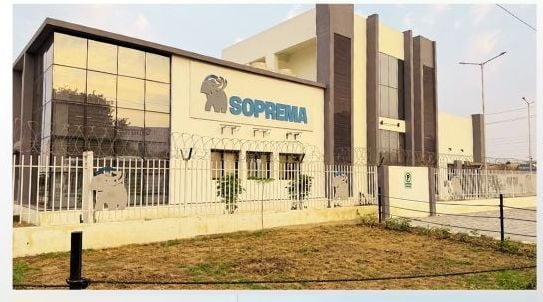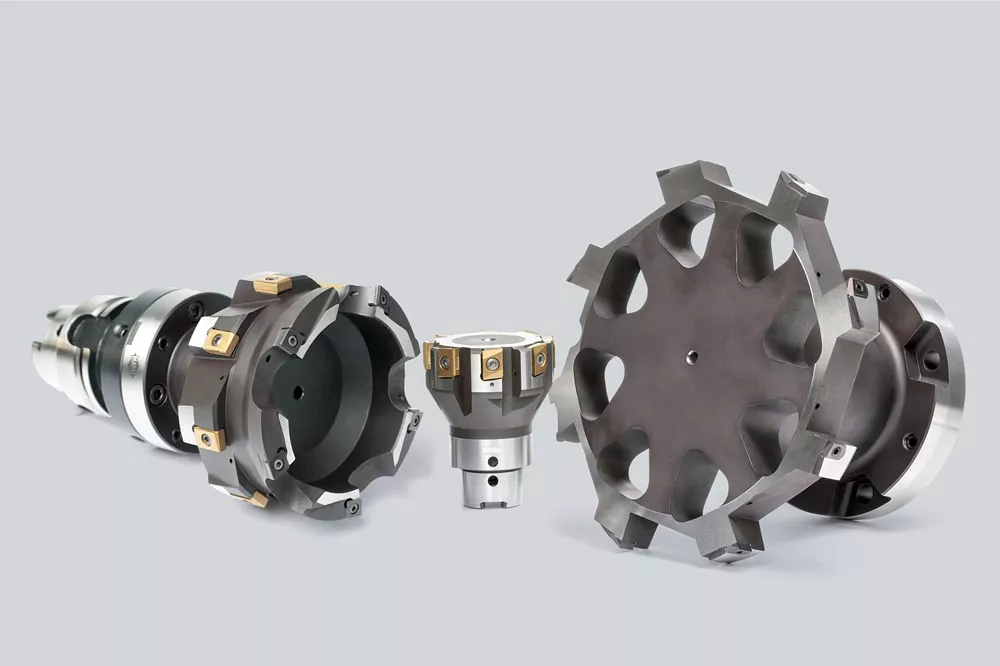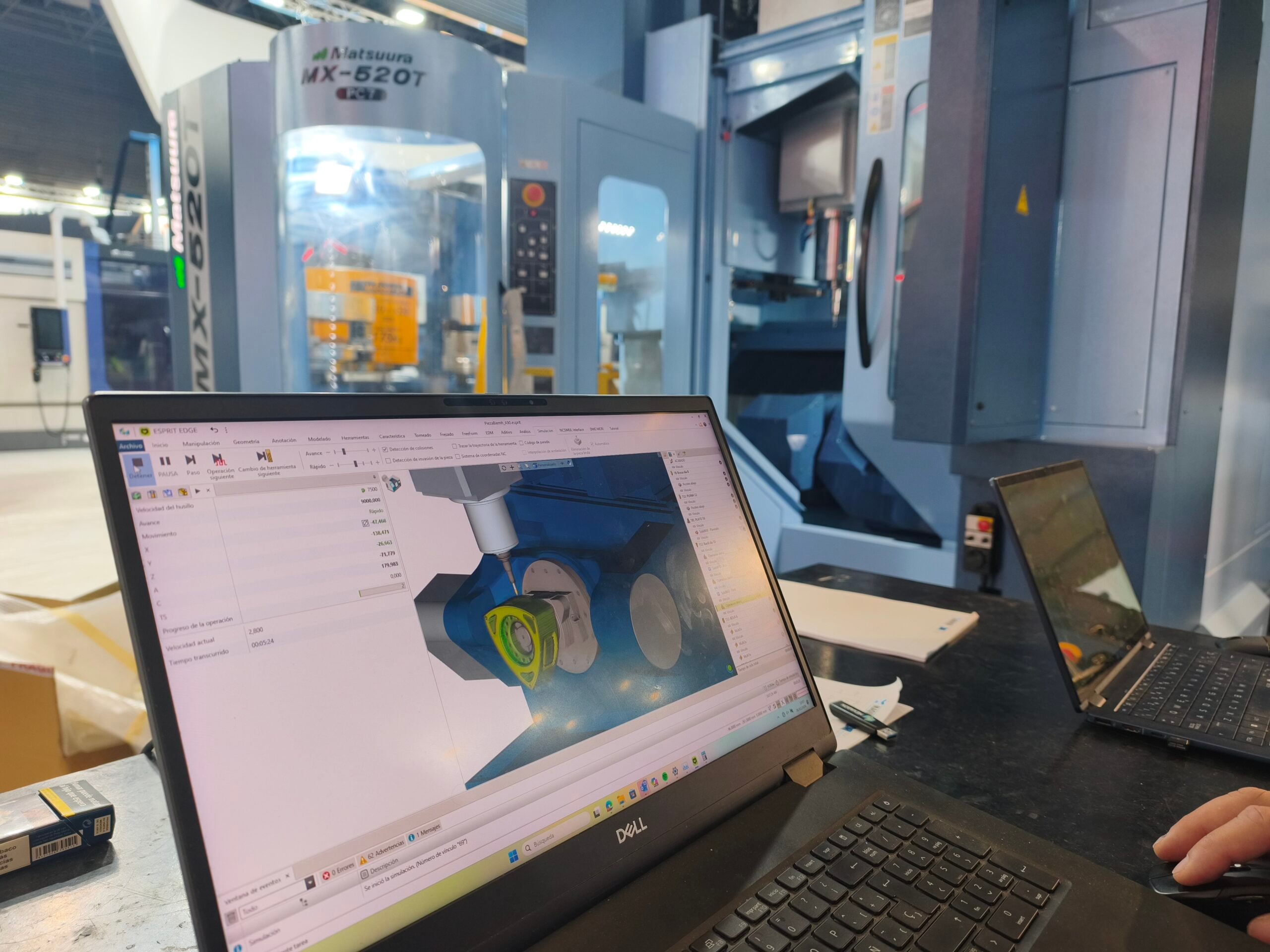
🎧Machining with CBN and PCD inserts

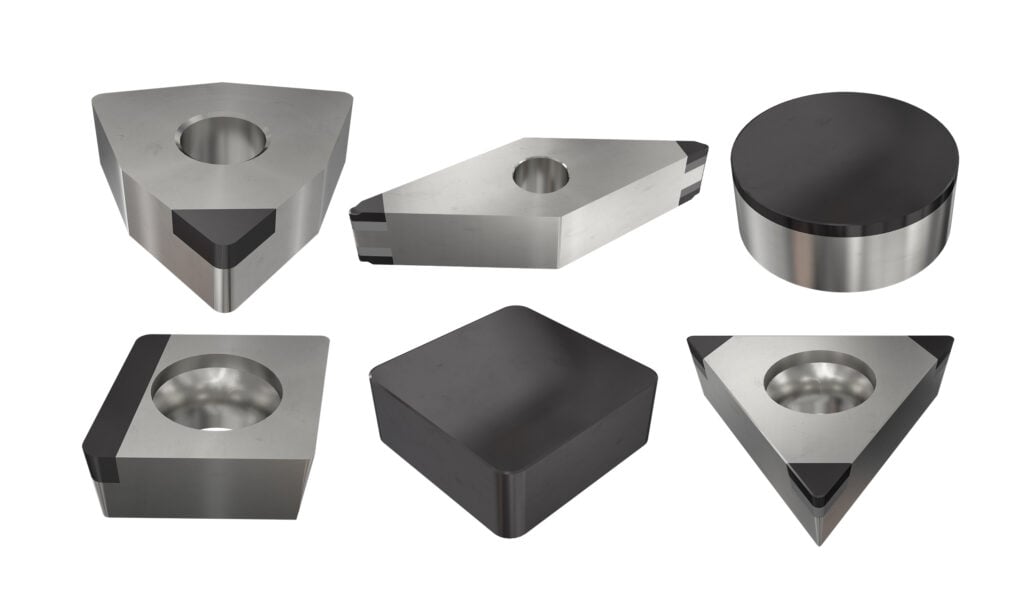
In the realm of modern manufacturing, precision and efficiency are paramount.
ISCAR consistently pushes the boundaries of innovation with its Polycrystalline Diamond (PCD) and Cubic Boron Nitride (CBN) tools. These advanced materials are transforming how industries approach machining to provide significant advantages.
PCD tools are renowned for their hardness and wear resistance, making them perfect for machining non-ferrous metals, composites, and abrasive materials. ISCAR’s PCD tools are designed to provide precision and superior surface finishes, essential in industries such as aerospace, automotive, and electronics.
The benefits of ISCAR’s PCD tools include extended tool life, as PCD’s exceptional hardness ensures that tools retain their cutting edge for longer periods, thereby reducing the frequency of tool changes and minimising downtime. Furthermore, cutting speeds can be increased. With PCD tools, manufacturers can operate at higher cutting speeds, thereby improving productivity and reducing cycle times.
ISCAR’s innovations in PCD tooling feature specialised geometries that improve chip control and heat dissipation, further optimising performance in demanding applications.
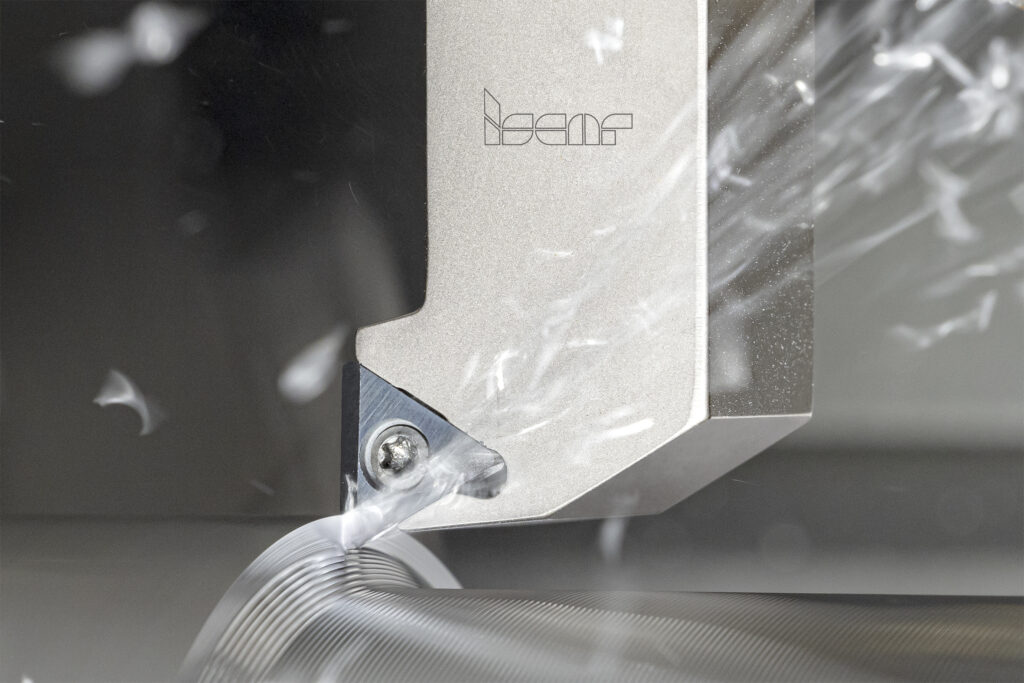
ISCAR’s CBN tools represent another cornerstone of its cutting-edge solutions, specifically designed for machining hardened steels, cast iron, and superalloys. CBN ranks second only to diamonds in hardness, making it an ideal material for tools that must maintain their integrity under extreme conditions.
An essential advantage of using CBN inserts is the ability to replace the slow and costly grinding operations of hardened parts. Turning with CBN inserts significantly lowers the cost per part compared to grinding. ISCAR recognises that customers are shifting their finishing processes from grinding to turning with CBN inserts, particularly in the automotive industry.
In grinding operations, size tolerance specifications exceed the capabilities of turning, while surface finish requirements are excessively stringent for hard turning. In hard turning, the size tolerance specifications surpass the turning capabilities, showcasing a complex geometry that makes single-point turning more practical. This method features relatively high metal removal rates, dry machining, faster machine setup, and shorter cycle times, facilitating both inner and outer diameter machining on a single machine.
CBN is chemically passive when
used in ferrous materials.
CBN is a synthetic material produced by a high-temperature and high-pressure process. The finished product consists of one carbide layer and one CBN layer. The combination of the two materials is called a cubic-boron-nitride (CBN) wafer. CBN was developed to compete with the finish-grinding process of hardened ferrous materials (45-68 HRC) for economical cutting of 80 to 250m/min. CBN is also used in cast iron machining applications, allowing for extremely high cutting speeds of more than 1000m/min.
Cutting tools made from CBN sintered materials are produced by mixing CBN with ceramics as hard as diamonds. Together, these materials are sintered at extremely high pressures and temperatures. Due to its low affinity and high hardness, sintered CBN delivers enhanced cutting performance, particularly for high-speed machining.
The key advantages of CBN tools are:
- Superior Hardness and Strength: CBN tools withstand high temperatures and maintain sharpness even when cutting hard materials. This is essential for industries like automotive and aerospace, where hard turning is standard.
- Improved Productivity: The durability of CBN tools allows for higher cutting speeds and feeds, translating to faster machining processes and increased throughput.
- Reduced Tool Wear: With exceptional thermal and chemical wear resistance, CBN tools last longer than conventional carbide tools, leading to long-term cost savings.
ISCAR’s commitment to innovation is evident in the development of multi-tipped CBN inserts featuring enhanced edge preparation, ensuring optimal performance in the most challenging machining environments.
ISCAR’s insert types are designated as:
- MT Type – Mini-Tipped Multi-Cornered/Single-Use Inserts. These single-use inserts are designed to enhance machining efficiency by fully utilising each cutting edge. With a smaller and more economical CBN tip, they significantly reduce costs by providing more cutting edges per insert. The multi-cornered design features a single piece of ISCAR-CBN mounted on every usable corner. Single-sided inserts utilise the top corners, while double-sided inserts make use of both the top and bottom corners. Available in various shapes, square and diamond-shaped inserts, known as ‘Quadro’, offer 4 corners, whereas triangular inserts, referred to as ‘triple’, provide 3 corners.
- MM, MF, MR Chipbreakers Type CBN Inserts: ISCAR offers a variety of MT chipbreaker geometries tailored to provide optimal solutions for each specific application, ensuring excellent chip control in hard machining. These chipbreakers effectively prevent long chips and possible workpiece damage, while maintaining a stable and reliable production process. The MF-type inserts are customised for fine to medium cutting, MM-type inserts are perfect for medium machining, and MR-type inserts are intended for roughing operations.
- L Full Edge Tipped Inserts: Designed for productivity, these full-edge tipped CBN inserts come in various shapes to suit different machining needs. Triangular-shaped inserts feature a full edge tipped with CBN, while square-shaped inserts offer right or left-hand full-edge tipped CBN options. These inserts provide increased stability, enhancing overall machining performance
- HS Type Half Solid CBN Inserts: These inserts feature a top layer of CBN with a carbide base, offering multiple cutting edges. The high hardness achieved through a special binder results in excellent wear resistance, impact resistance, thermal stability, and chemical stability, making them ideal for metal processing. They provide exceptional cost performance, saving 30 to 50% compared to carbide inserts. The solid material ensures high mechanical strength, making it a superior cutting tool material for extreme conditions. These inserts lower machining costs, require fewer tool changes, and are 5 to 10 times more efficient than carbide and ceramic inserts.
- Solid CBN inserts are versatile and can be used across diverse industries. They are particularly effective for cast iron and hardened steel workpieces, including automotive engine components, brake discs, brake drums, pulleys, cylinder blocks, cylinder liners, pumps, and cast-iron rolls. For hardened steel, they are suitable for industrial gears, wind power bearings, drive shafts, crushing hammer cylinders, and slurry pumps.
- S Type Full Solid CBN Inserts are designed for aggressive machining conditions, offering numerous advantages such as excellent wear resistance, impact resistance, thermal stability, and corrosion resistance. They provide strong thermal stability and are ideal for high-speed machining, particularly roughing. These inserts save 30 to 50% compared to carbide inserts while delivering superior surface quality, enabling turning instead of grinding. The solid material ensures a high degree of mechanical strength, making it a superior cutting tool material.

